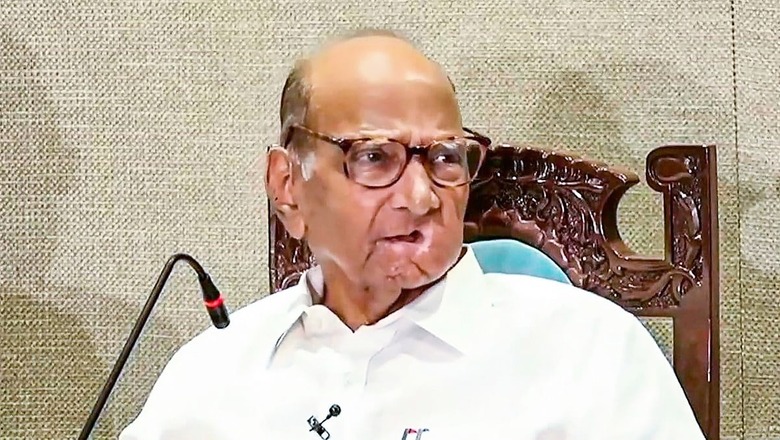
views
Nationalist Congress Party president Sharad Pawar on Saturday said the criticism of his tenure as agriculture minister by Prime Minister Narendra Modi is far from facts and the country became self-sufficient in food production when he helmed the ministry. Pawar also said he led some key initiatives as the Union agriculture minister from 2004-2014 which led to a rise in crop production, especially in eastern India. The prime minister’s remarks are far from facts, Pawar said, responding to criticism by Modi during the latter’s address at a public event in Shirdi on Thursday.
Some people in Maharashtra only did politics in the name of farmers. A senior leader of Maharashtra served as the country’s agriculture minister. I personally respect him, but what has he done for farmers, Modi had said. When Pawar was the Union agriculture minister, farmers were at the mercy of middlemen, he had said.
Pawar said when he took charge as the agriculture minister in 2004, there was a shortage of food grains in the country and India imported wheat from the US. The initiatives implemented (during his tenure) made the country self-sufficient in food production, the NCP chief said while addressing a press conference. For farmers, his ministry took the decision to waive the Rs 62,000 crore loan and the crop interest was brought down to 4 per cent from 11. A separate fisheries board was also established, the former Union minister added. He said the MSP (Minimum Support Price) for wheat, rice, soybean and cotton was doubled during his tenure as agriculture minister.
He said the MSP for rice was Rs 550 in 2004 which rose to Rs 1,310 by 2014, registering a growth of 168 per cent. The MSP of wheat was Rs 630 in 2004, which increased to 1,400 by 2014, a rise of 122 per cent. Similarly, MSP for crops like soybean saw a rise of 198 per cent. The NCP leader also said he undertook several ambitious initiatives for the National Horticulture Mission. The Rashtriya Krishi Vikas Yojana’ transformed the agriculture sector, according to Pawar. ”Earlier Punjab, Haryana, western Uttar Pradesh and some states of south India were known for food grains. However, the production of rice in states in the northeast, Chhattisgarh, Jharkhand and Odisha rose leading to the second green revolution,” he said. NCP leader and Lok Sabha member Supriya Sule on Thursday said it was the Modi government that had given Padma Vibhushan, the country’s second-highest civilian award, to Pawar for his work in the agriculture sector.




















Comments
0 comment